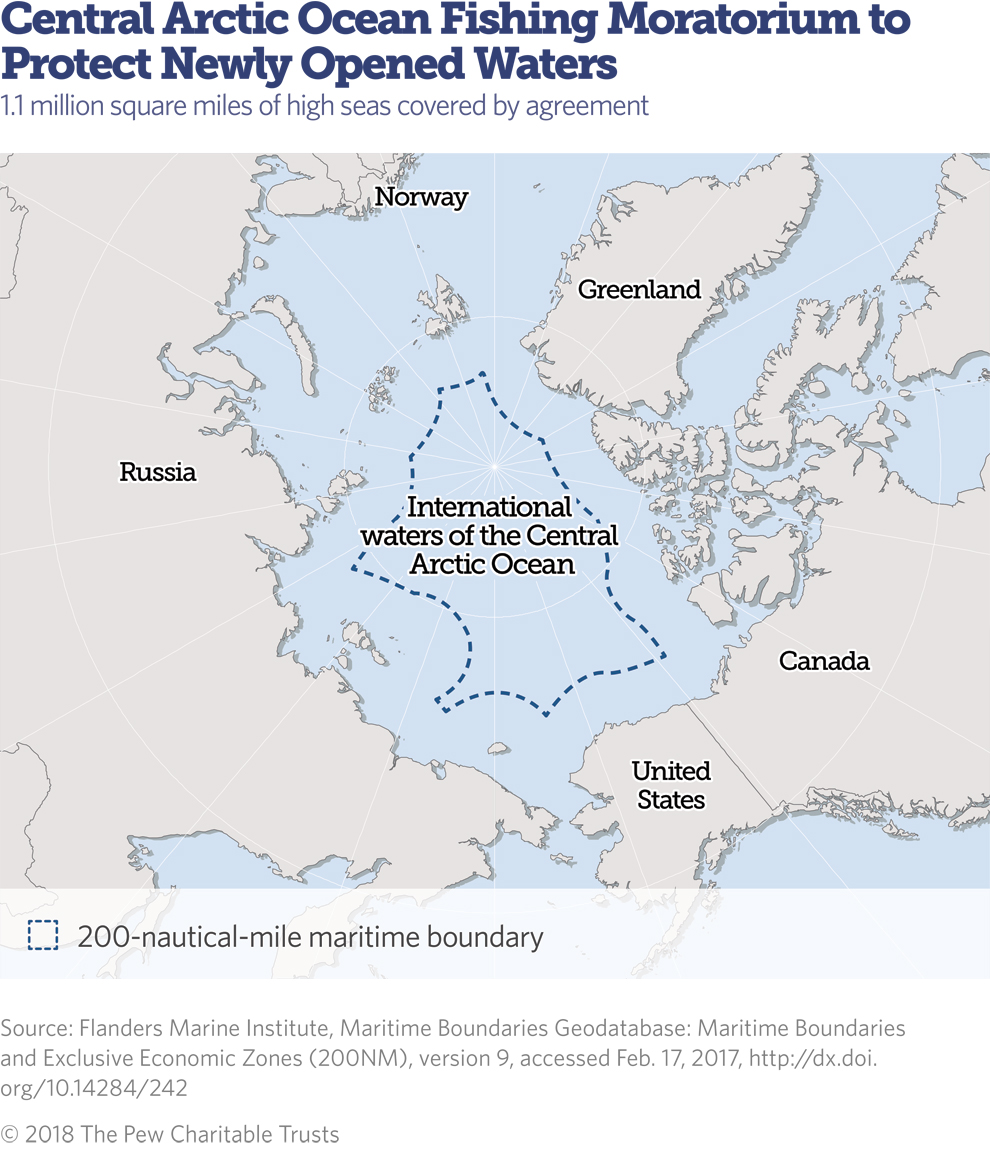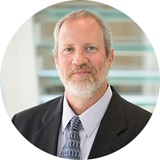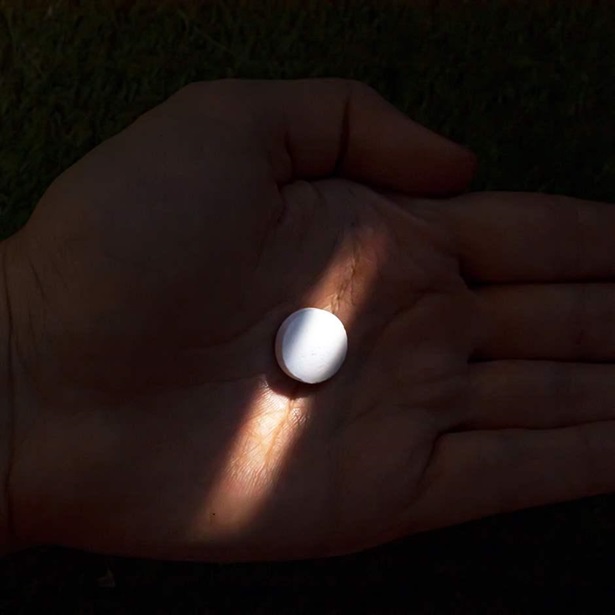Pew Applauds First International Agreement Protecting Newly Opened Arctic High Seas
Pact will prevent unregulated commercial fishing until science-based measures are in place
WASHINGTON—The Pew Charitable Trusts today praised the signing of an international agreement that prevents unregulated fishing in the high seas of the Central Arctic Ocean for at least 16 years unless science-based measures are agreed upon and established. Delegations from nine nations and the European Union met on Wednesday near Greenland’s Ilulissat Ice Fjord to finalize the accord, the first proactive ecosystem-based approach to conservation in the Arctic Ocean.
Pew has worked for more than eight years with government officials, scientists, the fishing industry, and Indigenous leaders to postpone industrial fishing in the region, where diminishing Arctic ice is opening new waters to commercial activity. In 2012, over 2,000 scientists signed a letter backing a moratorium on commercial fishing pending further research on fish stocks. The moratorium received further backing in a 2015 letter from the Inuit Circumpolar Council, which followed up earlier this year with its Utqiaġvik Declaration calling for the use of Indigenous knowledge in all processes related to the fishing moratorium.
Steve Ganey, Pew’s senior director for lands and ocean programs, issued the following statement:
“With this agreement in place, the Central Arctic Ocean is now the largest marine area where commercial fishing has been proactively placed off-limits in the interest of precaution.
“As new open waters emerge at the top of the world, international leaders have agreed that it would be risky and unwise to allow commercial fisheries to operate in the Arctic before scientists have established a baseline for monitoring the health of the region’s marine ecosystem. By using science-based measures to guide decision-making, the agreement will go a long way toward conserving this unique environment.
“This agreement provides a 16-year window for coordinated scientific research—a period that may be extended if the parties agree. During that time, the region will be protected from unregulated fishing while scientists and policymakers develop the structures and controls that would be necessary to ensure that any fishery is ecologically sustainable.”
The Pew Charitable Trusts is driven by the power of knowledge to solve today’s most challenging problems. Learn more at pewtrusts.org.













